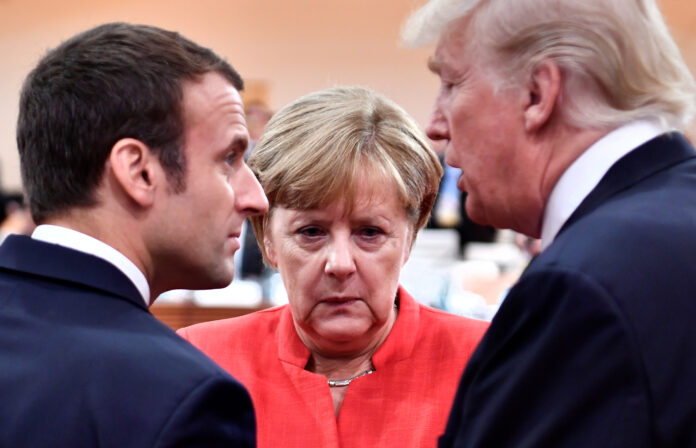Author: Robert D. Kaplan
Affiliation: The Center for a New American Security
Organization/Publisher: The National Interest
Date/Place: October 16, 2020/USA
Type of Literature: Journal Article
Word Count: 2099
Link: https://nationalinterest.org/feature/afterlife-empire-170803
Keywords: Spirit of Empire, Imperialism, Chinese Belt and Road Initiative, the Blob, and Great Power Rivalry.
Brief:
Kaplan argues in this article that empire is the most common form of political order throughout human history. Although some claim that this pattern has disappeared for more than a century and officials deny its existence in the current era, it is a pattern that has never gone. Empire “comes in an infinite variety of forms, from the morally chilling to the morally edified, from the overt to the subtle.” We have always been living in an imperial era. Given we have linked the concept of empire/imperialism exclusively for a long time with modern European colonialism, we have forgotten that empire is not necessarily synonymous with the West. To prove his perspective, the author presents a variety of examples from the current era, which is witnessing a strong return to the empire with its imperial logic. The muscular foreign behaviors of the great powers/competitors for global domination (China, Russia, and the United States) are imperial behaviors in spirit, if not in name. According to the author, the Chinese Belt and Road Initiative (BRI) is the most visible imperial component of the postmodern era, as this initiative (with its various transportation and communications networks across the world) is not different in its geopolitical, commercial, and military logic from the British East India Company in the past, but it comes in reverse, from east to west; it is based on imperial logic and even traces the paths of the Chinese Tang and Ming dynasties in the Middle Ages. As for Russia’s quest for hegemony over its near abroad, it is nothing but a “naked attempt to recreate the contours of the Soviet empire and its shadow zones.” Concerning the US, it is similar to the former French and British empires, as it was able to build alliances and military bases across the world that lasted for seven decades, in addition to the expansion of its commercial and financial influence through the global institutions that dominate. In this regard, Kaplan believes that the liberal international order is considered a very advanced and polite form of imperialism/empire that the world has known, as it gives another benign life to an empire (i.e. the US) that provides global stability that historical imperialism once provided. The spirit of the contemporary empire is not limited to the three great powers only. The secondary powers in today’s world have powerful imperial origins, which are shown in their current external behaviors seeking to dominate their regional areas, especially over the geographical spheres they have reached in history, but by other means more appropriate for this era. Here, the author refers to India (Hinduism), Iran (Persian), and Turkey (Ottoman) as contemporary examples. The European Union (the most modern form of the empire) is not dissimilar to these powers, where a bureaucratic elite, based in Brussels, controls the daily lives of peoples from far-flung Iberia to the Balkans. Moreover, the generous aid provided by its powerful countries (especially Germany) to its weak ones (to Italy, for example) and the efforts it exerts to keep them in the Eurozone is nothing but an imperialist way to internationalize their local economies, and to ensure the continued purchase of its consumer goods and employment of its workers; just as China is doing in the world through BRI. Thus, the world of today (and tomorrow) is not devoid of the imperial logic of yesterday’s world, even if it is not recognized by officials. The author quotes Guy Verhofstadt, former Prime Minister of Belgium, as saying: “The world of tomorrow is not a world order based on nation states or countries. It is a world order based on empires.” Thus, he argued, there “was no European future outside the imperial-like dimensions of the European Union.” In an important part of this article, Kaplan argues that the election of Joe Biden as President of the United States will make the imperial reality of today’s world more clear, because Trump has been a nationalist with a neo-isolationist streak that did not attach importance to “cosmopolitan missionary tasks,” unlike Biden, who is considered an extension of liberal internationalists. Biden (if he will be elected) will restore the activity of the US State Department (The Blob) and its excessive missionary role in the world, as it is historically largely composed of an imperialist elite that believes in rebuilding the structures of the US alliances and strengthening America’s foreign commitments. So, the resurgence of this elite with Biden will revive the Western empire by different means and with benign logic, only more courteous.
By: Djallel Khechib, CIGA Senior Research Associate




